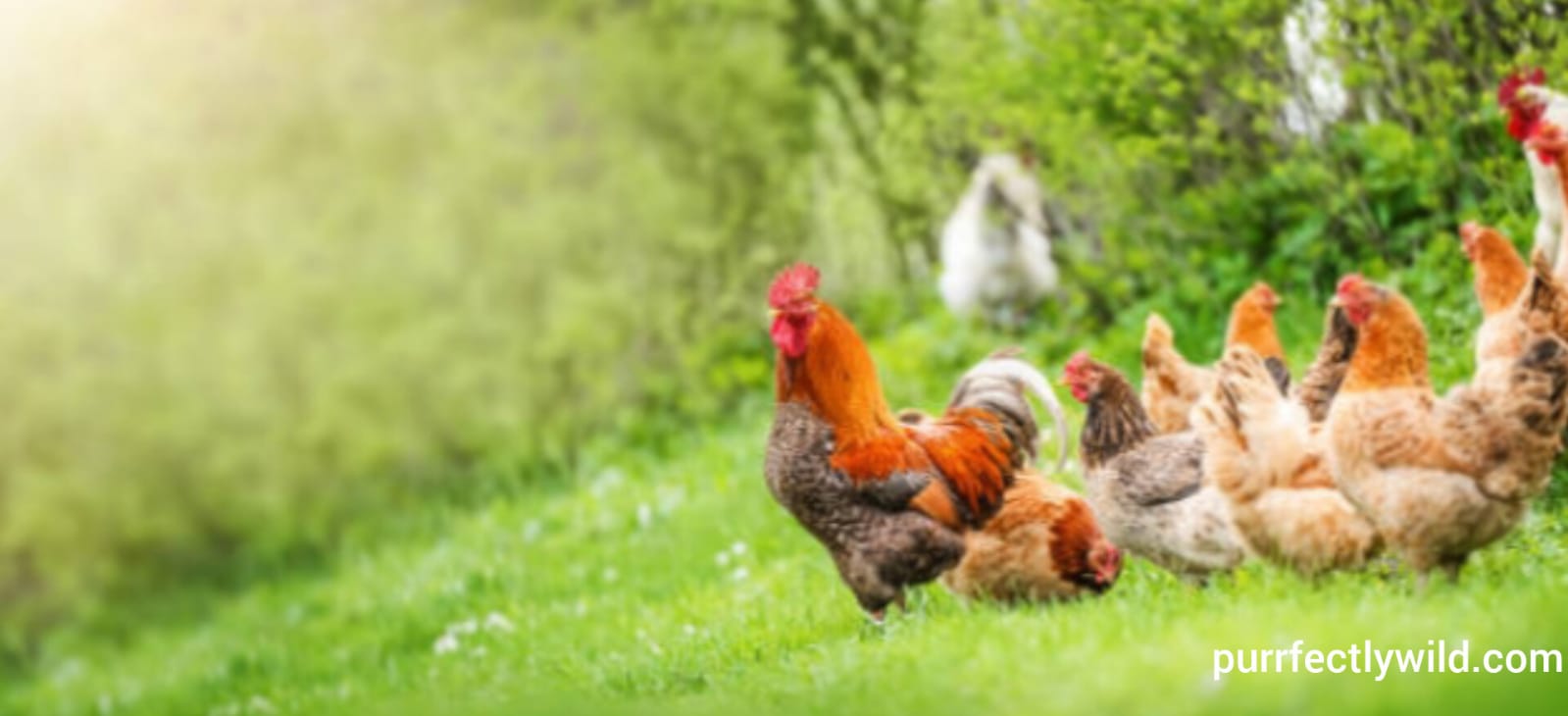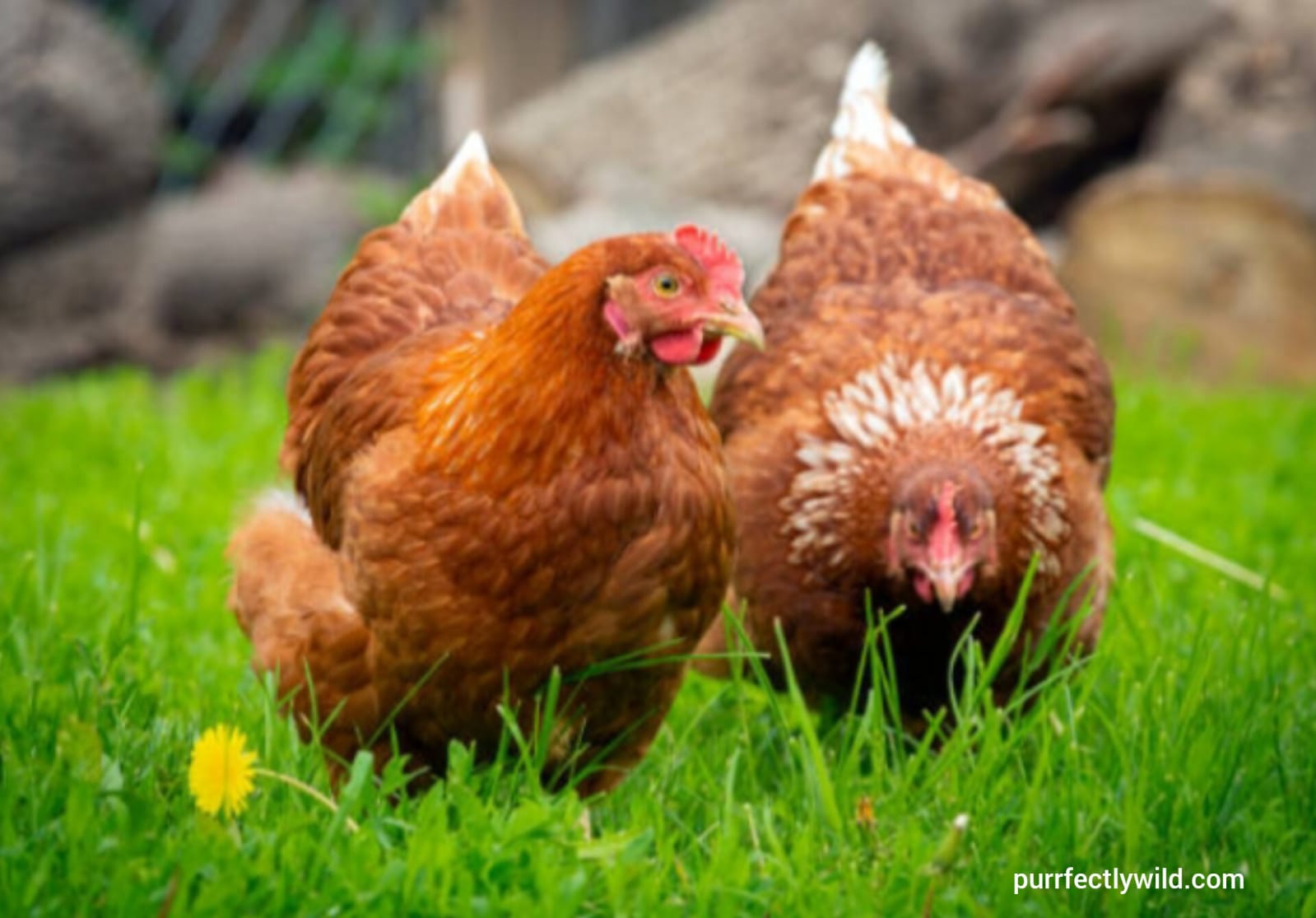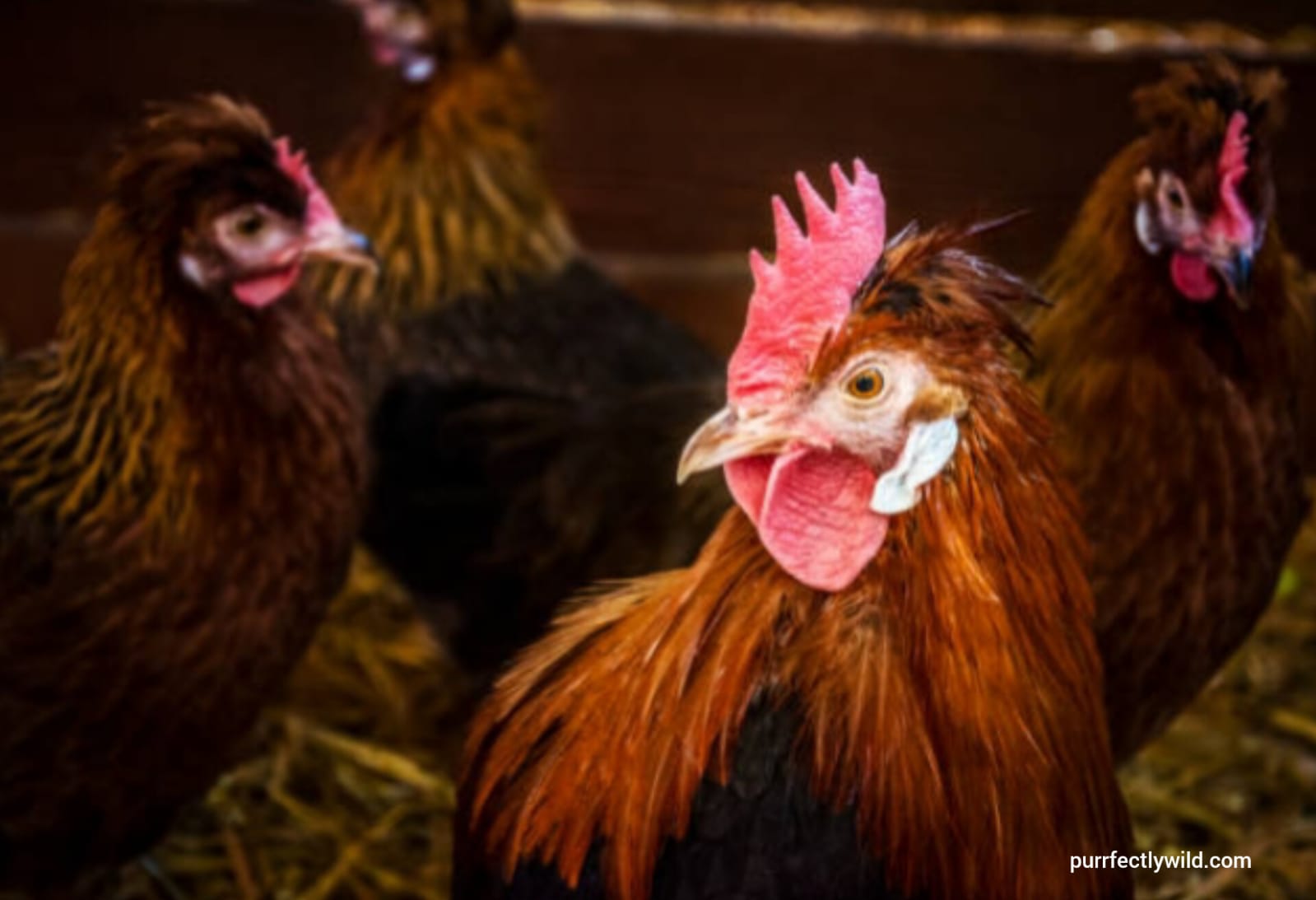Why is My Hen Crowing Like a Rooster?
I remember one morning when I was surprised to hear one of my hens crowing like a rooster. At first, I thought I was mistaken, but it happened again. Curious, I began observing her behavior. She had been acting a bit more dominant recently, strutting around the coop and taking charge of the other hens.
After doing some research and speaking to a few colleagues, I learned that sometimes when a flock has no rooster, the most dominant hen may start exhibiting rooster-like behaviors, including crowing. It’s related to hormonal changes. In rare cases, a hen’s ovary can stop functioning, and her body may produce more testosterone, causing her to act like a rooster.
Though it was strange at first, I wasn’t too concerned. She was healthy and continued laying eggs, but the crowing never fully stopped. It was a fascinating reminder of how animals can adapt to their environment, even in unexpected ways. That hen taught me something new about chicken behavior that I hadn’t encountered before.
Do Hens Crow Like Roosters?
In uncommon conditions, a hen can begin crowing like a roosters. This generally happens when a hen is at the highest point of the hierarchy and there is no chicken in the herd. The top hen will crow to lay out both strength and go about as a defender to different hens. This normally happens in additional prevailing chicken varieties, for example, the Leghorn or Rhode Island Red varieties.
Hens may likewise begin crowing like a chicken in the event that they experience sickness or harm on their left side ovary.

Furthermore, an interesting variety, the Longcrower, produces hens that crow like chickens. In reproducers, this characteristic is extraordinarily appreciated and pursued.
Yet, maybe your hen is laying eggs and crowing. There are a couple of additional reasons this is going on. We should investigate the 4 justifications for why your hen might be crowing like a chicken.
1. Confirm Your Hen Isn’t a Rooster
It might appear glaringly evident, yet you might need to check that you didn’t unintentionally get a rooster. Incubation facilities can misidentify a chick as a hen rather than a rooster. Sexing botches happen on the grounds that the three principal techniques to sex a stylish are not 100 percent exact. Cockerels ordinarily begin crowing when they are around 2-3 months old. You most likely have a rooster that has been mislabeled if your “hen” is still relatively young and crowing.
2. Longcrowers:
The Longcrower is a rare breed of crowing chicken that originated in ancient China during the T’ang dynasty. There are a few varieties of Longcrowers which change in shading and disposition. Longcrowers were as of late acquainted with the US and hate an authority breed acknowledgment. They are perceived in Asia and Europe.
3. A Dominance hierarchy Without A Rooster
In a characteristic rush, rooster inhabit the highest point of the food chain. Studies have shown that chickens crow to affirm an area and strength. A hen may mimic a rooster’s crow in a flock without one. At the point when a hen crows, she is laying out her place at the highest point of the group.
A hen’s crowing typically isn’t so clearly as a chicken’s. Additionally, it may sound strangled. Normally crowing hens will proceed to lay eggs and the crowing is essentially important for holding predominance in the group.
4. Hen Crowing Happens From Age, Hormonal Irregular characteristics or Infection
Hens who are encountering maturing may likewise crow. Hen crowing happens from a hormonal irregularity. Hens have two ovaries. Just the left one produces eggs. The right ovary generally stays lacking all through a hen’s life.
In any case, assuming the left ovary becomes harmed from a physical issue or illness, the hen’s body could begin to foster the right ovary. The left ovary is the main spot in a hen’s body that produces estrogen (the female chemical for chickens). The right ovary is made of testicular tissue and when it creates, drives male chemicals into the hen. These chemicals can overpower a hen’s body and prompt her to act as a chicken.
An internal disease or an external injury can damage a hen’s ovary. By the time hens are 2.5 years old, one-third of them may have ovarian cancer. While age can contribute to some hens starting to crow, it is more often due to cancer or other diseases affecting their left ovary over time.
5. Hens Crowding as a Result of Poor Diet
Malnourished and unbalanced chickens may develop ovarian damage before they are fully developed. The eggshell of a hen that lacks calcium is brittle and thin. The inner strain of making an egg can make the egg inside break, making interior harm the hen’s regenerative framework. A hen’s body may force the right ovary into production when the damage affects the left ovary.
Although this change in how the left and right ovaries work may not result in a hen becoming a rooster, it can. While still laying eggs, it can also cause a hen to begin crowing like a rooster. In other uncommon cases, the left ovary might assume control over the egg creation (yet there aren’t much of studies to back this up.)
6. Your Hen Changes Sex to a Rooster
It might surprise you, but a hen can actually change into a rooster. This process is called spontaneous sex reversal. It causes the hen to develop male traits both physically and hormonally. You might notice changes like male plumage, wattles, a larger comb, and a decrease or halt in egg production.
Sometimes, hens undergo this sex change if their ovary is damaged. This damage alters their hormones, increasing testosterone levels. The hen’s previously non-functional testes become active, leading to the development of male organs.
This phenomenon is more common than you might think. About 1 in 10,000 hens can undergo this sex change. Given there are approximately 22.85 billion chickens worldwide, it’s estimated that around 2,285 hens might develop male characteristics.
Four Moves toward Prevent a Hen from Crowing
Knowing the justifications for why your hen is crowing isn’t sufficient. You should make the important strides expected to prevent it from crowing. There are different strategies and home cures that you can utilize in such a case.

1. Present a Rooster
As we have featured over, one reason your hen is crowing is that there is no chicken around. The arrangement, subsequently, is to add a chicken into your herd. By taking over crowing, the rooster will alter the situation.However, if you want to stop crowing because of the noise, a rooster will not work.
2.Introduce New Hens
Make an effort to include new hens in your flock. The pecking order will be rearranged, possibly causing your hen to stop crowing enough to stop. Introduce chickens from a more dominant breed, such as Rhode Island Red, Leghorn, or Wyandotte, if you want your hen to fall down the pecking order.
3. Utilize the No-Crow Collar
No-Crow collars are little groups that you put around the chicken’s neck to make their crowing calmer. If you want immediate results, this is the way to go, and it is more efficient and safe.
The collar works by limiting how much hair the hen can attract and, simultaneously, keeping them from creating clearly crows. No crow collars don’t cause uneasiness or hurt hens. A hen will in any case circumvent their ordinary business. The main contrast this time is that the crowing will be calmer.
4. Give Clean Everyday environments
Clean everyday environments will not generally prevent a hen from crowing, however it can assist with safeguard care. At the point when a hen has every one of the minerals and supplements she wants to major areas of strength for make, her body stays more grounded. When a hen lacks essential nutrients, her body pulls the needed nutrients from her organs and bones to provide for the eggs.
This looting of supplements leaves hens more helpless against illness, injury, and microscopic organisms. In this article on the reasons why hens lay rotten eggs, look at these additional symptoms of hen disease. Moreover, giving a coop that has roosting choices that aren’t excessively high can likewise assist a hen with keeping away from injury while leaving the roost.
Conclusion
Crowing hens can cause commotion issues for their proprietors, particularly in populated regions. Crowing is in many cases an indication of pain or irregularity in a hen. On the off chance that your hen is as much a pet to you as an egg supplier. Then frequently everything you can manage is to keep on giving the best consideration you can for her. On the off chance that you don’t have that adaptability and should keep a calmer herd ideally, a portion of these different arrangements will be useful. On the off chance that you truly do need to rehome or winnow her, the chances of getting a second crowing hen are exceptionally low.


